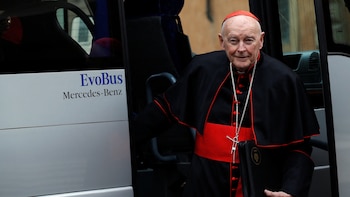
This Saturday, April 9, a man was gunned down right in front of the new headquarters of the Callao Judiciary, near the first port. The man would not have died on the spot, but was taken to a hospital. According to information from the authorities, this crime would have been carried out by a settling of accounts.
The criminal fired two shots at burning clothes and aiming at the victim's head. Everything was recorded on security cameras in the area.
The man did not die right there, but neighbors and passers-by came to help him. Then, they called a police officer, so he managed to be transferred to a nearby hospital. At the moment, there is no information about his status.
At the moment, the authorities hold the theory that this crime was a settling of accounts.
The police have already arrested one person. According to neighbors and merchants at the nearby market, the subject would have tried to steal the victim's cell phone.
Now, merchants and neighbors have lost all the security they could have felt by the construction of the headquarters of the Judiciary nearby. Insecurity in the area is worrying people, despite the fact that both the Callao region and Metropolitan Lima are under a state of emergency.
WHAT IS A STATE OF EMERGENCY?
This is a measure that, according to the Political Constitution of Peru, can be decreed by the President of the Republic with the agreement of the Council of Ministers and must only be for a certain period of time. Depending on how the authorities believe it, it can apply for the entire national territory or to a single specific sector.
A State of Emergency is declared when there is “disruption of peace or internal order, catastrophe or serious circumstances affecting the life of the Nation”. Article No. 137 of the Constitution states that this measure cannot exceed 60 days and if it is to be extended, a new decree will be required.
“In a state of emergency, the Armed Forces assume control of internal order if the President of the Republic so provides,” however, in this case, it is the Police in charge of order, which will be supported by the Armed Forces.
RIGHTS THAT ARE SUSPENDED
Right to liberty: subjects of rights may engage in any kind of activity, which involves the exercise of other fundamental rights other than freedom, as long as they do not violate with it the norms that make up public order, good customs and those that are imperative in nature.
Inviolability of domicile: Rights subjects may prevent any other person from entering their home to carry out investigations, searches or other grounds if they do not authorize it or when third parties do not have a court order. They may not prevent it, however, in the event of a flagrante delicto or very serious danger of its perpetration.
Freedom of assembly: Subjects of rights may group, congregate or assemble, without prior notice, both in private places and open to the public as long as they do so peacefully. On the contrary, meetings in public places or roads require advance notice to the authority, which may prohibit them only for proven reasons of safety or public health.
Freedom of transit within the national territory: The subjects of rights, in principle, can move freely, within the national territory in which they have their domicile and also outside it, which implies being able to choose where to live. Except for health reasons or by court order or by application of the Aliens Act.
Últimas Noticias
Debanhi Escobar: they secured the motel where she was found lifeless in a cistern
Members of the Specialized Prosecutor's Office in Nuevo León secured the Nueva Castilla Motel as part of the investigations into the case

The oldest person in the world died at the age of 119
Kane Tanaka lived in Japan. She was born six months earlier than George Orwell, the same year that the Wright brothers first flew, and Marie Curie became the first woman to win a Nobel Prize

Macabre find in CDMX: they left a body bagged and tied in a taxi
The body was left in the back seats of the car. It was covered with black bags and tied with industrial tape
The eagles of America will face Manchester City in a duel of legends. Here are the details
The top Mexican football champion will play a match with Pep Guardiola's squad in the Lone Star Cup

Why is it good to bring dogs out to know the world when they are puppies
A so-called protection against the spread of diseases threatens the integral development of dogs



